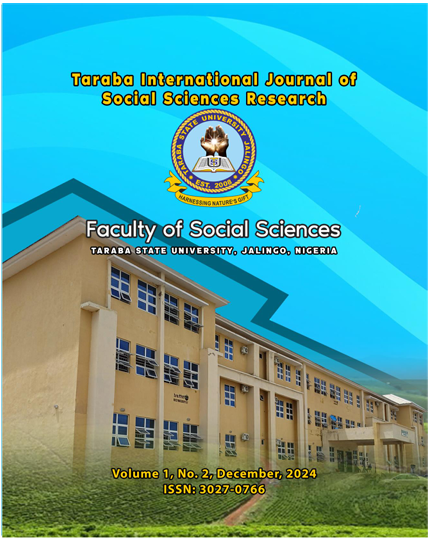NAIRA DEVALUATION ON THE SOCIO-ECONOMIC DEVELOPMENT OF WOMEN IN THE INFORMAL SECTOR IN TARABA STATE
Keywords:
Naira devaluation, socioeconomic development, women in informal sectorAbstract
This study examines the impact of naira devaluation on the socioeconomic development of women in the informal sector of Taraba State, Nigeria. It specifically assesses its effects on income levels, purchasing power, and the coping strategies employed by women entrepreneurs. Using a phenomenological research design, data were collected through in-depth interviews with women
entrepreneurs and representatives from local microfinance institutions. Grounded in dependency theory, the study highlights how reliance on external economic forces influences local economic stability. Findings reveal that naira devaluation has led to rising costs of goods and services, financial instability, and reduced access to formal financial services, making it difficult for women to sustain their businesses and meet loan obligations. Moreover, banking inefficiencies and market price fluctuations further exacerbate these challenges. The study emphasizes the need for targeted policy interventions, including financial inclusion programs, local production support, and skills development initiatives, to mitigate the adverse effects of naira devaluation and enhance the socioeconomic well-being of women in Taraba State.

